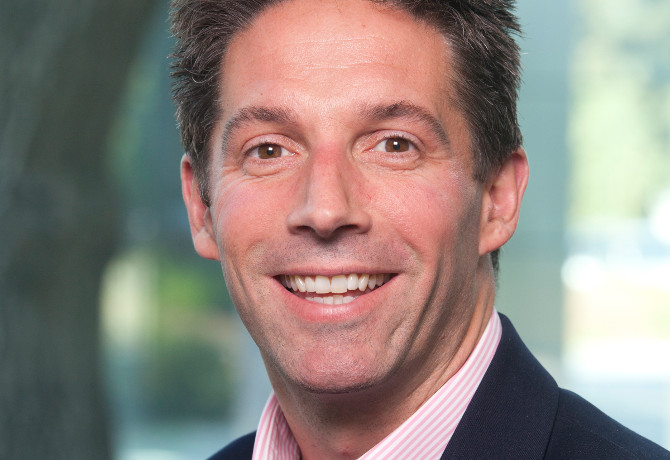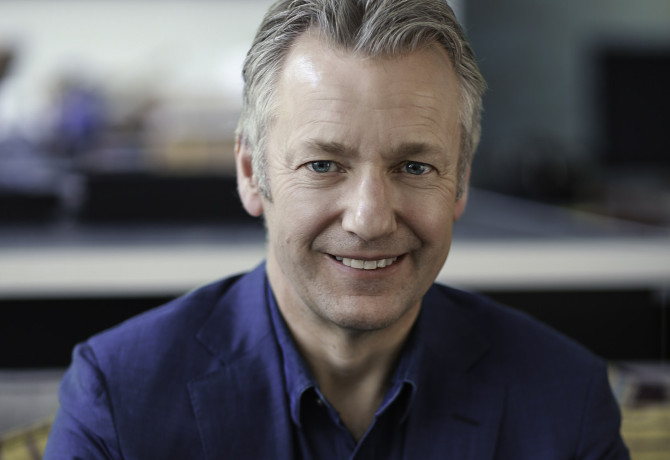Professional services and technology consultancies may never master the finer elements of creative services, but the ‘bean-counters’ still pose a major threat to agencies. Ben Bold reports.

Back in the 1980s, when Sir Martin Sorrell was finance director at Saatchi & Saatchi, and he exhibited the corporate wizardry of carving an ad holding group out of a company previously focused on the manufacturing of wire shopping baskets (hence Wire and Plastic Products, today WPP) he had a reputation in adland as a “bean-counter”, an accountant more focused on numbers, perceived by some as anathema to the notion of creativity.
And while today he presides over the world’s largest ad group, and is arguably the biggest name in advertising, an inverted form of history could be repeating itself. Once again, the accountants just might be taking over – and not from the inside out this time, but rather from the outside in.
Last November, the advertising world was shocked when news broke that consulting firm Accenture had bought UK-based creative agency Karmarama. The group had already made no secret of its ambitions in the arena of digital and media services under the Accenture Interactive banner, but acquisition of a creative hot-shop crystallised its aim to become a “new breed of agency”.
“There are a lot of people attracted to advertising, because it is a $600bn industry, and there has been a big shift to digital,” notes Yannick Bolloré, chairman and chief executive of Havas Group.
Accenture is not alone in moving beyond its core expertise of professional services. Four years ago, Deloitte Consulting launched Deloitte Digital and, in February 2016, it acquired award-winning US-based creative agency Heat.
Meanwhile, tech-led firms such as IBM and Oracle have been making inroads into creative, media and data support so they can offer clients a one-stop-shop service, with Adobe, for instance, paying $540m for programmatic advertising firm TubeMogul.
‘Frenemy’ or just plain enemy?
Clearly the idea that a CMO could hire Accenture to evaluate brand strategy, and then create and distribute marketing content, is a dangerous one as far as the traditional advertising groups are concerned. So understandably, given his own heritage, Sorrell has long referred to its auditor Deloitte as a “frenemy”.
Are these companies now ready to prise client business away from the likes of WPP, Publicis, Omnicom and Interpublic, or will marketers continue to prefer to work with advertising specialists?
The idea of professional services firms diversifying through acquisition has predictably drawn both its detractors and believers from the marketing industry.
“They can’t compete as ‘Mad Men’ just yet, but they definitely look at the industry and see a huge opportunity to compete as ‘Math Men’”
“Honestly, I do not think we are working in the same industry,” says Bolloré. “I have spent a lot of time with consultants from Accenture and other companies. They are smart people, much smarter than me, but they approach [client challenges] from a different angle.
“They look at corporate strategy, and group strategy, and our mission in advertising is to understand the consumer journey. We are much more about culture and consumers, than corporate strategy.”
For Chris Carmichael, former HSBC global media chief and senior Hewlett-Packard marketer, who is currently a freelance global media and marketing consultant, the professional services groups view creative ad agencies as more peripheral.
“I don’t believe that the creative element of marketing/advertising is really what they’re after,” he says. “They can’t compete as ‘Mad Men’ just yet, but they definitely look at the industry and see a huge opportunity to compete as ‘Math Men’.”

Transparency opportunity
Carmichael argues that the consultancies’ large client bases, for whom they perform a wide array of services, means that extending that offering to include the likes of analytics, data management and insight generation is “not much of a leap”.
“The big thing they offer is trust,” he says. “A ‘big four’ accounting firm comes with a lot of trust attached to the name. The data, analysis and strategy part of the industry is something they already have a point of view on, so why wouldn’t they commercialise that?
“Added to which, the world is getting more and more complex, and clients crave independent, expert advice. With all the recent transparency issues surrounding more traditional advertising and media agencies, there is definitely an opportunity for big-name companies from other areas to muscle into the space.”
Carmichael’s comments are echoed by the sentiments of Andy Main, head of Deloitte Digital and a principal at Deloitte Consulting.
“We see the role of the CMO expanding across the footprint of business. The reason [for professional services firms buying ad agencies] is to appeal to the holistic needs of CMOs and in part to also have fuller conversations with them, which are not necessarily just about advertising and demand generation, but tied into business strategy that then informs advertising strategy and content,” he says.
But while digital and data capabilities are an obvious fit into a discipline steeped in precision, spreadsheets and a more ‘scientific’ approach to business, how does a creative agency fit? Is it not at cultural odds?
Carmichael thinks not. “If it’s correctly set up in terms of governance, and carefully managed, there’s no reason why the two couldn’t happily co-exist,” he says.
“It’s enabling business insights to flow seamlessly into marketing strategy and then advertising execution. More and more that has to happen in near-real-time, so anything that can facilitate that, is a good thing for clients.”
Main stresses the integration of the two types of services must be done right. “I would say that in a traditional consulting business they would be like oil and water,” he admits. “But consider the legacy of Deloitte Digital. We were set up as a separate brand and are at liberty to build our own creative culture from the get-go. But yes, we would be at odds if we didn’t have the culture to accept it.”

Dubious clients
Agency executives are not the only ones to question the validity of professional services firms’ newest offerings. Main admits that clients were initially dubious: “I think in the early days they were thinking ‘What, are you kidding me? But as the brand and the business has become more commonplace that’s less of an issue.”
While clients could go to Deloitte for their digital transformation requirements, change management, talent building, all “under one roof”, adding creative services to the mix via the Heat acquisition has been the icing on the cake.
Deloitte Digital has been working on projects ranging from merging the physical and digital together to deliver more “competitive experiences” for customers in the retail sector, to extending into areas such as speech and gesture-based activation. It has also worked with technology brand LG to introduce it to the world as a mobile handset manufacturer, refining its business strategy to gain a greater share of the smartphone marketplace.
“Creativity is a difficult thing to do repeatedly, it’s a difficult thing to do at scale, and it’s a difficult thing to commercialise”
With consultancy groups genuinely encroaching on territory held by ad agencies, should agencies feel threatened?
“If they’re not, they should be,” says Carmichael. “The funny thing is that the advertising groups are sending clients running into their arms. They are recommending the use of a ‘big four’ firm as arbiter in disputes over contracts, and media audits.”
Main, perhaps predictably so, also offers an emphatic ‘yes’. “If I were a traditional advertising company I would be worried because my relationships are typically in the marketing department, not as high up as the CMO, and I can’t cut across the whole expanse of the business, the whole customer journey and fathom the depths of the supply chain. I can only talk to the market about what I know.”
‘Nebulousness’ of creativity
He argues that ad agencies do not have the heritage in understanding how businesses work outside of marketing. “They don’t know how to be relevant to all a clients’ requirements,” he says.
Main acknowledges there will always be a place for the traditional ad shop. “Obviously the traditional advertising business is not going to go away,” he says. “But I think the demands of on advertising services will be coupled with what we talked about business transformation.”
As Carmichael points out, the nebulousness of creativity could be its saving grace from total global domination by the accountants. “Creativity is a difficult thing to do repeatedly, it’s a difficult thing to do at scale, and it’s a difficult thing to commercialise,” he says.
“What is the value of an idea? How do you charge a client for that? Witness the hand-wringing ad agencies have gone through over this, and the fact that they basically still charge on an FTE (full-time equivalent) basis.”
Observers looking out over the media and marketing landscape can expect to see it continue to change — further deals being struck, more consolidation and greater diversification on the parts of the consultancy groups.
“The problem is [that professional services firms] cannot buy us, we are family-owned, but it is true they could buy a competitor.” admits Bolloré. “Everything being equal, if they buy a competitor then, yes, of course. But that would then [that would make them] a conglomerate, and [such businesses are] not very easy to work with.”
For Carmichael, media buying scale is becoming less and less of a factor in client decision-making, and this presents opportunities for non-traditional players – whether smaller independents, or big multi-nationals from different areas of industry — to grab a slice of the pie.
“Many clients will use the current trust crisis to overhaul their marketing operations, and some are already doing it,” he says. “Creative, media planning buying, tech suppliers, business strategy, audit – the whole shooting match.”
It is perhaps ironic that terms such as ‘one stop shop’ and ‘holistic’ are bandied about so readily by marketing agencies, when — if the likes of Deloitte Digital’s Main are to be believed — it is the consultancies that are really forging ahead to make their offerings truly ‘holistic’, providing services for the CMO, as well as the CTO, CFO and CEO.
“I think what you’ll end up with is many more bespoke solutions for each advertiser, rather than everyone using variations on the same setup,” Carmichael concludes. “That will require more resource in-house, and external partners that can offer real expertise, and demonstrate the value that they can bring.”







